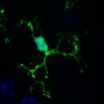(Press-News.org) A positive outlook on life might lower your risk of having a stroke, according to new research reported in Stroke: Journal of the American Heart Association.
In an observational study, a nationally representative group of 6,044 adults over age 50 rated their optimism levels on a 16-point scale. Each point increase in optimism corresponded to a 9 percent decrease in acute stroke risk over a two-year follow-up period.
"Our work suggests that people who expect the best things in life actively take steps to promote health," said Eric Kim, study lead author and a clinical psychology doctoral student at the University of Michigan.
Optimism is the expectation that more good things, rather than bad, will happen.
Previous research has shown that an optimistic attitude is associated with better heart health outcomes and enhanced immune-system functioning, among other positive effects.
The study is the first to discover a correlation between optimism and stroke. Previous research has shown that low pessimism and temporary positive emotions are linked to lower stroke risk.
Researchers analyzed self-reported stroke and psychological data from the ongoing Health and Retirement Study, collected between 2006 and 2008. Participants were stroke-free at the beginning of the study.
Researchers measured optimism levels with the modified Life Orientation Test-Revised, a widely used assessment tool in which participants rank their responses on a numeric scale.
The team used logistic regression analysis to establish the association between optimism and stroke and adjusted for factors that might affect stroke risk, including chronic illness, self-reported health and sociodemographic, behavioral, biological and psychological conditions.
"Optimism seems to have a swift impact on stroke," said Kim, noting that researchers followed participants for only two years.
The protective effect of optimism may primarily be due to behavioral choices that people make, such as taking vitamins, eating a healthy diet and exercising, researchers said.
However, some evidence suggests positive thinking might have a strictly biological impact as well.
Stroke is the No. 3 killer in the United States, behind heart disease and cancer, and a leading cause of disability.
###
Co-authors of the study are Nansook Park, Ph.D., and Christopher Peterson, Ph.D. Author disclosures are on the manuscript.
The Robert Wood Johnson Foundation's Pioneer Portfolio funded a part of the study through the Positive Psychology Center of the University of Pennsylvania.
Statements and conclusions of study authors published in American Heart Association scientific journals are solely those of the study authors and do not necessarily reflect the association's policy or position. The association makes no representation or guarantee as to their accuracy or reliability. The association receives funding primarily from individuals; foundations and corporations (including pharmaceutical, device manufacturers and other companies) also make donations and fund specific association programs and events. The association has strict policies to prevent these relationships from influencing the science content. Revenues from pharmaceutical and device corporations are available at www.americanheart.org/corporatefunding.
NR11– 1100 (Stroke/Kim)
Additional resources:
Downloadable stock footage, animation and our image gallery are located at www.heart.org/news under Multimedia.
For more on stroke, visit the American Stroke Association.
Optimism associated with lower risk of having stroke
American Heart Association rapid access journal report
2011-07-22
ELSE PRESS RELEASES FROM THIS DATE:
Adolescent boys among those most affected by Washington state parental military deployment
2011-07-22
In 2007, nearly two million children in the United States had at least one parent serving in the military. Military families and children, in particular, suffer from mental health problems related to long deployments.
A new study from researchers at the University of Washington (UW) concludes that parental military deployment is associated with impaired well-being among adolescents, especially adolescent boys. The study, "Adolescent well-being in Washington state military families," was published online in the American Journal of Public Health.
Lead author Sarah ...
4 unusual views of the Andromeda Galaxy
2011-07-22
These four observations made by Hubble's Advanced Camera for Surveys give a close up view of the Andromeda Galaxy, also known as Messier 31 (M 31). Observations of most galaxies do not show the individual stars — even the most powerful telescopes cannot normally resolve the cloudy white shapes into their hundreds of millions of constituent stars.
In the case of the Andromeda Galaxy, however, astronomers have a few tricks up their sleeves. Firstly, images from Hubble Space Telescope have unparalleled image quality as a result of the telescope's position above the atmosphere. ...
Workings of brain protein suggest therapies for inherited intellectual disability, autism
2011-07-22
Researchers now have a much clearer understanding of how mutations in a single gene can produce the complex cognitive deficits characteristic of Fragile X Syndrome, the most common inherited form of intellectual disability. As the majority of patients with Fragile X Syndrome also display autism-like symptoms, the findings offer hope for treating both conditions.
A report in the July 22nd issue of the journal Cell, published by Cell Press, defines a set of messenger RNA (mRNA) molecules that the Fragile-X mental retardation protein (FMRP) binds in the brains of mice. ...
Targeting toxin trafficking
2011-07-22
Toxins produced by plants and bacteria pose a significant threat to humans, as emphasized by the recent effects of cucumber-borne Shiga toxin in Germany. Now, new research published on July 21st by the Cell Press journal Developmental Cell provides a clearer view of the combination of similar and divergent strategies that different toxins use to invade a human host cell.
Ricin is a highly toxic protein derived from the castor bean plant that has raised concerns as a potentially lethal biological weapon. Pseudomonas Exotoxin A (PE) is a sometimes deadly protein produced ...
Breastfeeding may prevent asthma
2011-07-22
Feeding a baby on only breast milk and for up to 6 months after birth can reduce their risk of developing asthma-related symptoms in early childhood, according to new research.
The study, which is published online today (21 July 2011) in the European Respiratory Journal, looked at the impact of the duration of breastfeeding and the introduction of alternative liquids or solids in addition to breast milk.
The researchers, from the Generation R Study, Erasmus Medical Center in The Netherlands, used questionnaires to gather data from over 5,000 children. They ascertained ...
Proteins enable essential enzyme to maintain its grip on DNA
2011-07-22
COLUMBUS, Ohio – Scientists have identified a family of proteins that close a critical gap in an enzyme that is essential to all life, allowing the enzyme to maintain its grip on DNA and start the activation of genes.
The enzyme, called RNA polymerase, is responsible for setting gene expression in motion in all cells. RNA polymerase wraps itself around the double helix of DNA, using one strand to match nucleotides and make a copy of genetic material.
RNA polymerase cannot fall off of the DNA or stop this process once it starts. If it does, no proteins will be made, ...
UNC researchers identify seventh and eighth bases of DNA
2011-07-22
(Embargoed) CHAPEL HILL – For decades, scientists have known that DNA consists of four basic units -- adenine, guanine, thymine and cytosine. Those four bases have been taught in science textbooks and have formed the basis of the growing knowledge regarding how genes code for life. Yet in recent history, scientists have expanded that list from four to six.
Now, with a finding published online in the July 21, 2011, issue of the journal Science, researchers from the UNC School of Medicine have discovered the seventh and eighth bases of DNA.
These last two bases – called ...
Working mothers and the effects on children
2011-07-22
Parents struggling to combine paid work with bringing up their children now have some positive news thanks to a new study funded by the Economic and Social Research Council (ESRC) on maternal employment and child socio-emotional behaviour in the UK. The research shows that there are no significant detrimental effects on a child's social or emotional development if their mothers work during their early years.
The ideal scenario for children, both boys and girls, was shown to be where both parents lived in the home and both were in paid employment. For children living with ...
Gardening in the brain
2011-07-22
Gardeners know that some trees require regular pruning: some of their branches have to be cut so that others can grow stronger. The same is true of the developing brain: cells called microglia prune the connections between neurons, shaping how the brain is wired, scientists at the European Molecular Biology Laboratory (EMBL) in Monterotondo, Italy, discovered. Published online today in Science, the findings could one day help understand neurodevelopmental disorders like autism.
"We're very excited, because our data shows microglia are critical to get the connectivity ...
Identical virus, host populations can prevail for centuries, WHOI researcher reports
2011-07-22
A Woods Hole Oceanographic Institution (WHOI) scientist, analyzing ancient plankton DNA signatures in sediments of the Black Sea, has found for the first time that the same genetic populations of a virus and its algal host can persist and coexist for centuries. The findings have implications for the ecological significance of viruses in shaping algae ecosystems in the ocean, and perhaps fresh water as well.
"The finding that the DNA of viruses and algal host cells can be preserved in the geological records is of great interest to microbial ecologists," said Marco Coolen ...
LAST 30 PRESS RELEASES:
SfN announces Early Career Policy Ambassadors Class of 2026
Spiritual practices strongly associated with reduced risk for hazardous alcohol and drug use
Novel vaccine protects against C. diff disease and recurrence
An “electrical” circadian clock balances growth between shoots and roots
Largest study of rare skin cancer in Mexican patients shows its more complex than previously thought
Colonists dredged away Sydney’s natural oyster reefs. Now science knows how best to restore them.
Joint and independent associations of gestational diabetes and depression with childhood obesity
Spirituality and harmful or hazardous alcohol and other drug use
New plastic material could solve energy storage challenge, researchers report
Mapping protein production in brain cells yields new insights for brain disease
Exposing a hidden anchor for HIV replication
Can Europe be climate-neutral by 2050? New monitor tracks the pace of the energy transition
Major heart attack study reveals ‘survival paradox’: Frail men at higher risk of death than women despite better treatment
Medicare patients get different stroke care depending on plan, analysis reveals
Polyploidy-induced senescence may drive aging, tissue repair, and cancer risk
Study shows that treating patients with lifestyle medicine may help reduce clinician burnout
Experimental and numerical framework for acoustic streaming prediction in mid-air phased arrays
Ancestral motif enables broad DNA binding by NIN, a master regulator of rhizobial symbiosis
Macrophage immune cells need constant reminders to retain memories of prior infections
Ultra-endurance running may accelerate aging and breakdown of red blood cells
Ancient mind-body practice proven to lower blood pressure in clinical trial
SwRI to create advanced Product Lifecycle Management system for the Air Force
Natural selection operates on multiple levels, comprehensive review of scientific studies shows
Developing a national research program on liquid metals for fusion
AI-powered ECG could help guide lifelong heart monitoring for patients with repaired tetralogy of fallot
Global shark bites return to average in 2025, with a smaller proportion in the United States
Millions are unaware of heart risks that don’t start in the heart
What freezing plants in blocks of ice can tell us about the future of Svalbard’s plant communities
A new vascularized tissueoid-on-a-chip model for liver regeneration and transplant rejection
Augmented reality menus may help restaurants attract more customers, improve brand perceptions
[Press-News.org] Optimism associated with lower risk of having strokeAmerican Heart Association rapid access journal report


